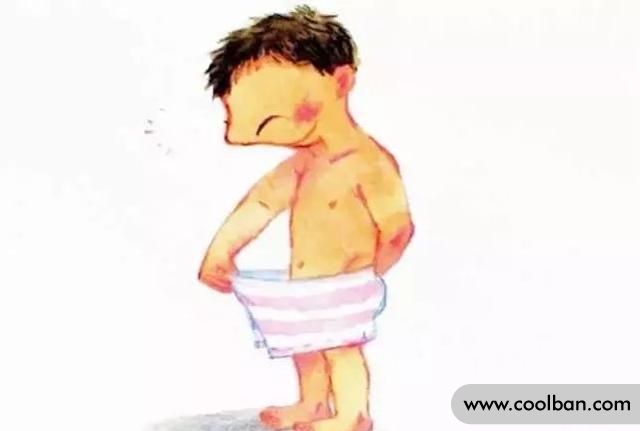How to deal with children's "genital" behavior?
When a child reaches about three years old, some parents may find that they are touching their genitals in the bath. Parents at this time do not need to be nervous, indicating that your child is going through the "genital period". The "genital stage" is the third stage of the psychosexual stage proposed by Freud, also known as the "Oedipus complex". It refers to the story of Oedipus, the son of the king of Thebes, who killed his father and married his mother in ancient Greek mythology. In fact, the idea that a daughter wants to marry her father when she grows up, and the idea that her son wants to marry her mother when she grows up is a concrete manifestation of this period. But there are also many parents who cannot face these problems head-on and choose to escape. How to correctly treat the behavior of children's "genital period" and how to give correct guidance are what parents should really pay attention to.

1. Teach children the difference between men and women
The genital stage usually shows behaviors as follows: boys play with their penis with their hands; girls reach out and touch the vulva. This is normal, and sometimes touching the genitals is just a way for the child to relax and be quiet. When parents see these behaviors, they don't need to stop them. They can just use this opportunity to introduce body organs to their children and guide and educate them correctly. Tell them that boys and girls are different and let them know if they are a boy or a girl. Children in the genital period are often curious about the opposite sex, so parents should teach them correct concepts, so that they understand that there are differences between men and women, and the opposite sex needs to maintain a certain distance, not too close, and establish a correct view of the sexes.
2. Correctly enlighten children
Children in the genital stage often have some Oedipal complexes or Oedipal complexes, and they regard their parents as rivals in love, creating a hostile mentality. At this time, parents should give their children more care and seriously enlighten them. If you can't spend the "genital period" well, children are prone to male feminization, female masculine, and neither male nor female behavior. Therefore, parents at this stage must fulfill their respective gender responsibilities.

3. Stop negative words and deeds
During the genital stage, children are very curious about the genitals, so they will keep touching them. At this time, parents must not beat and scold their children, use negative language and excessive reactions, and do not convey views such as "taboo, pornography". Parents' oral or non-verbal responses will affect their children's feelings. Studies have shown that punitive attitudes or punishments will increase children's guilt and shame for touching the genitals, resulting in the inability to pass the "genital period". Physical problems or sexual dysfunction in adulthood.
4. Divert the child's attention
To give the child correct guidance, use other things to divert attention, let the child stop touching the sexual organs, and at the same time educate him that his own sexual organs cannot be seen and touched casually by others, so that they can establish a correct sexual awareness. For example, you can redirect your child's behavior through activities such as letting him pick and place objects, buy a favorite toy, or read a book. In daily life, you can arrange more interesting activities, games and reading, and introduce more playmates of the same age, which will reduce the frequency to a certain extent.

5. Method 5: Observing the number of recorded behaviors
Observe, under what circumstances does a child typically experience genital stimulation? Bored, tired, lonely or nervous? Do stimulating behaviors occur in kindergarten and at home? How often do these behaviors occur each day? We can record what we observe. Help children better pass the "genital period".
